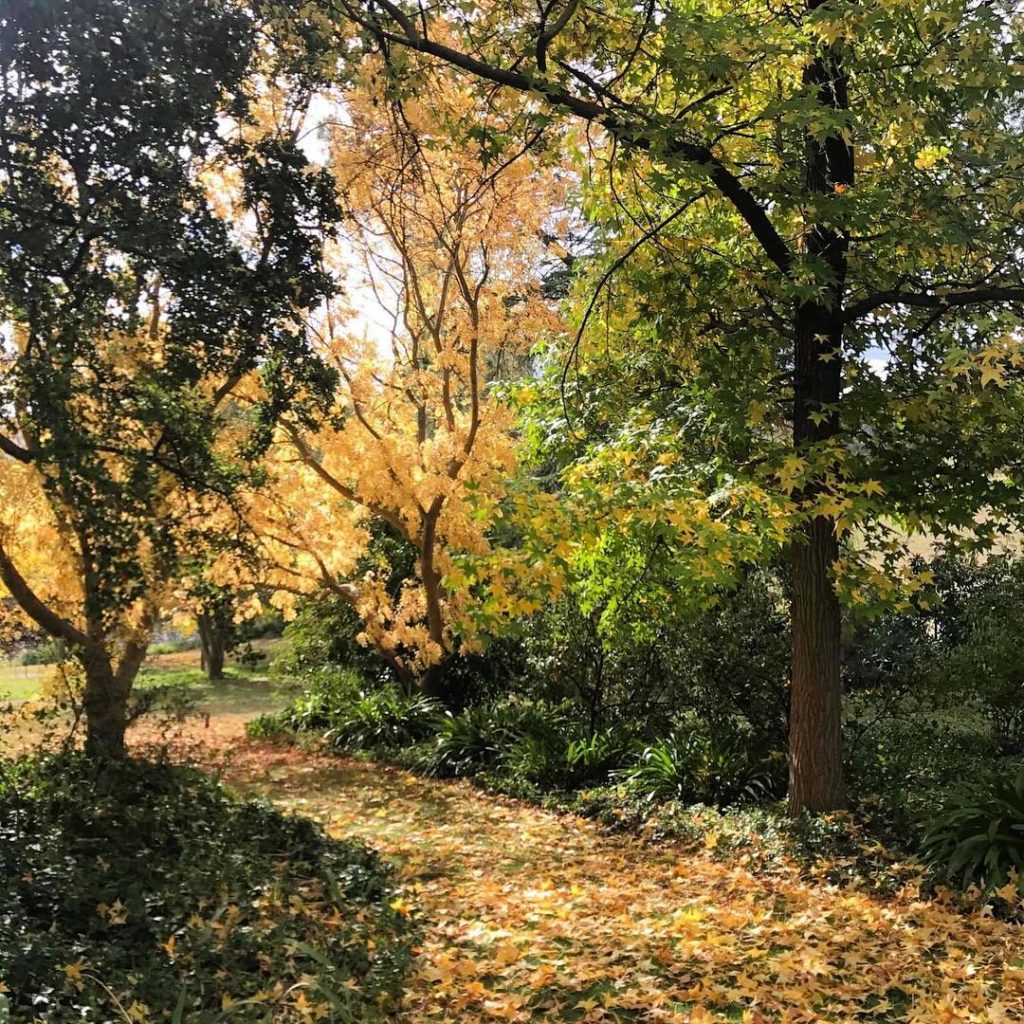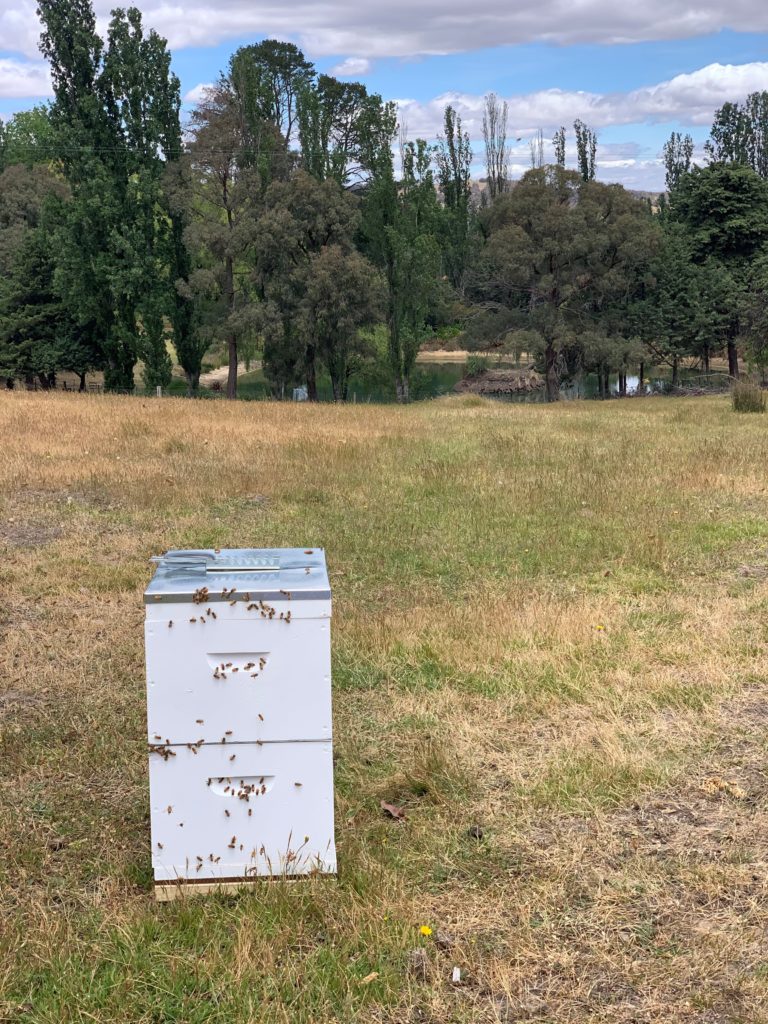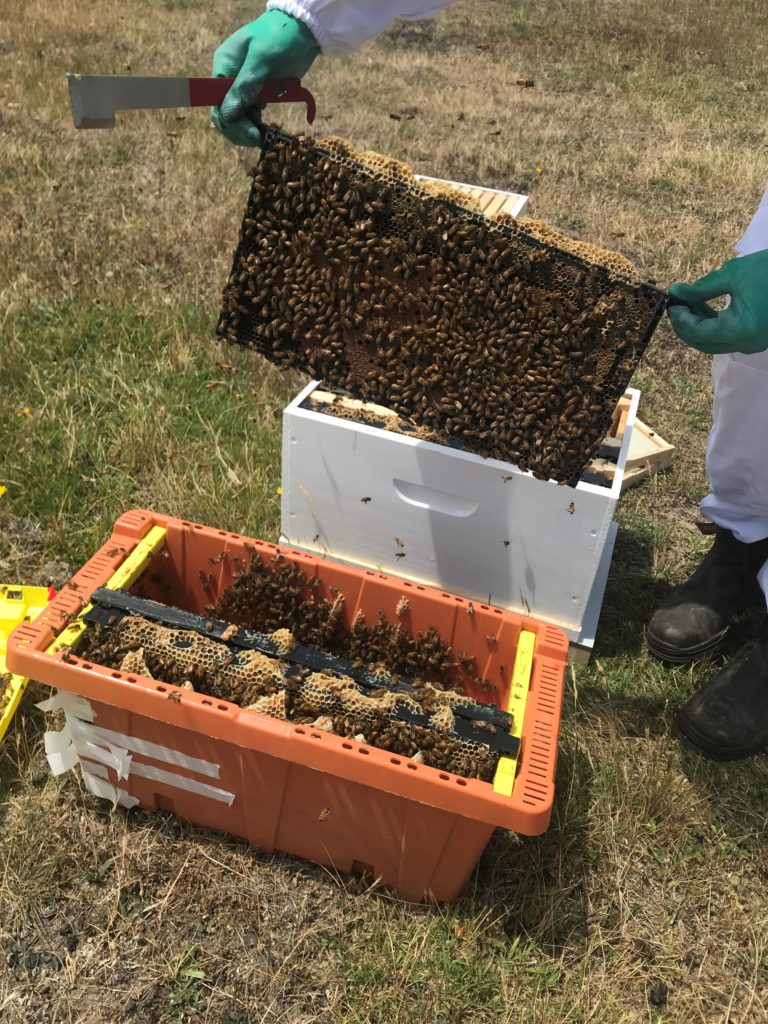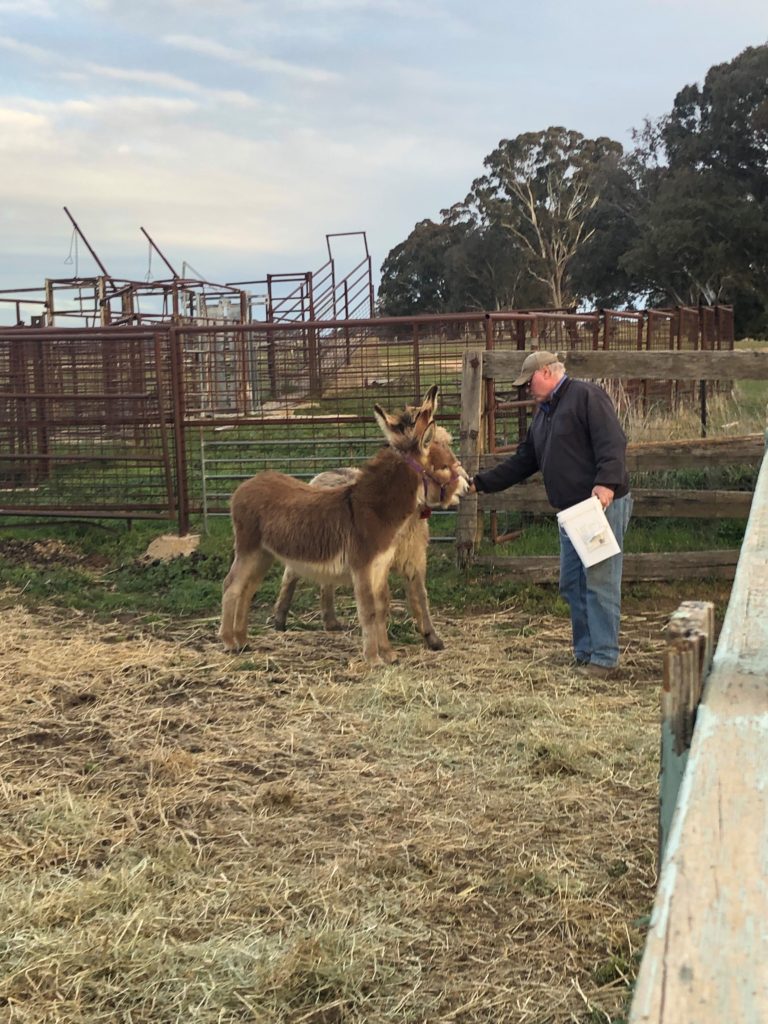Autumn is shearing time at Markdale so we thought it was the perfect time to share some fun facts.
Shearing
- Domesticated sheep have been shorn for their wool for millennia.
- Early on, wool was a vital resource to support human life. To protect this resource, shepherds tended flocks of sheep with care and respect for the animals like we still do today on Markdale. In exchange for their wool we ensure the sheep have access to food and water, and protected from disease and predation.
- Most sheep grow wool continuously and they should be shorn annually.
- The shearing process is not painful to the sheep. The shearers are highly skilled and work to protect the sheep, the wool and their backs!
- It takes on average 2 minutes for a professional shearer to shear a sheep.
- West Australian shearer Lou Brown set a new world record last year by shearing 497 merino ewes in eight hours — just over a sheep a minute.
- Wool removed from a single sheep is called a fleece.
- On average a sheep’s fleece weighs between 5 – 8kg.
- A wool classer works beside the shearers to class each fleece – things taken into consideration include colour, strength, diameter and spinning capacity.
- The fleeces are bundled by class into bales and each bale weights between 110 – 200kg.
- Our fleeces are sold at auction.
- Following sale fleeces are washed and the wool grease (lanolin) is extracted and used in lotions. Clean wool fibres are made into clothing or blankets. The lanolin is used in hand lotions.
Albeit treated as a weed and nuisance in the paddock, the dark sweet fruit from our blackberry trees makes excellent jam in the kitchen. This is best served on hot, buttery toast with a cup of coffee.
Ingredients
500gms of blackberries
500gm of jam sugar
1 lemon
Method
1. Place two small plates in the freezer.
2. Combine blackberry and sugar with the finely grated rind and juice of one lemon in a heavy based saucepan.
3. Bring to the boil and simmer for 35-40 mins (stirring occasionally but careful not to break up the fruit).
4. Test the jam consistency by spooning a small amount onto a chilled plate. Run your finger through it to draw a line.
If the jam stays apart (i.e. does not run) it is ready. If not continue to simmer for another 5 – 10 mins and try again.
5. Once ready spoon into sterilised jars and seal.
6. Keeps for 3 – 6 months in a dark spot. Consume within a month of opening and keep in the fridge.
Autumn activities
- During March our rams and ewes will be joined. The rams will work hard over 5 weeks and we will hopefully expect thousands of lambs on the ground in October.
- Superphosphate is spread in early March to catch the autumn rain. This year we will have both a ground crew and plane applying the fertiliser.
- Shearing will commence in May this year. A team of shearers travel to Markdale each day and will shear thousands of sheep through the week. It is an exciting time on the farm with all hands on deck to ensure the sheep are kept in good condition, the beautiful fine wool fleeces are treated with care and the shearers are well fed!
- Our bees are being checked regularly and are enjoying their home on the hill overlooking the pond. However our honey production has been lower than expected because of the smoke from the bushfires in the Southern Highland and drought conditions. A decision has been made to not ‘raid’ the hive this year and instead to let the bees have their honey for the long winter months ahead.
- It’s time to plant the garlic again. Garlic will grow from March to November and this year we are again thinking of planting Italian White and Monaro Purple.
- Other autumn veggies to be planted include onion, broccoli, cabbage, lettuce, cavolo nero and leeks.
Meet Phil, Markdale’s gardener who lovingly looks after the 5 acre Edna Walling garden.
This year Markdale will be a feature in the Crookwell Garden Festival held over the 7 and 8 November. It is an exciting time and a great opportunity to showcase his hard work.
For guests staying at the farmstay, Phil is always happy to answer any questions whilst they are exploring the beautiful landscape.
Name: Phil Rose
Position: Head Gardener
How long have you worked at Markdale?
17 months.
What attracted you to the role?
The opportunity to work in an Edna Walling designed garden and as the Head Gardener being able to bring my own style and work with the family to achieve a similar vision.
What does a typical day look like for you?
It varies depending on the season and what is coming up. At the moment I’m concentrating on hedging and maintenance in preparation for all the Autumn leaves that will start to fall.
What aspect of your job do you enjoy most?
I love being able to step back and see the overall beauty of this stunning garden and landscape beyond. It truly is a remarkable property.
What part of the garden would you recommend guests not miss?
There are so many beautiful features of the garden that it’s hard to name just one. The main lawn with the stone wall and the wisteria arbour are always favourites.
What do you enjoy doing in your spare time?
Spending time with my family – swimming, playing, camping.
If you could meet anyone (living or dead) who would it be?
Peter Cundall.
What are three words that best describe you?
Honest, hardworking, modest.
Spring is one of our favourites times of the year at Markdale and we had plenty to celebrate with friends, colleagues and guests. Here are some of the highlights…
Wedding Bells!
We hosted a family wedding on the October long weekend.
The ceremony was held on the main lawn followed by drinks and a grazing table, as the sun set.
Guests then made their way down to a beautiful marquee on the polo field, illuminated by thousands of fairy lights, for the reception. The celebration was filled with fun, laughter and plenty of dancing long into the evening.
Open Garden
In celebration of National Gardening Week we held an Open Garden event on Saturday, 19 October. It was a wonderful day and a good chance for us to catch up with locals, travellers, new and returning visitors from country NSW, Canberra and Sydney.
Watch out for details of our next Open Garden in 2020 in the next seasonal update.
Spring Sundowner
We invited the neighbours over for an end of Spring sundowner last week and to also celebrate the start of the festive season.
Our staff and lovely neighbours enjoyed celebratory drinks and plenty of laughs along with some delicious ham and turkey!
Summer should be a time of growth on the farm. The long days and heat mean our pastures should grow and the sheep are feeding. The one element critical to this is of course water. On Markdale we have not experienced the drought as badly as others, however our dams are low and the pasture is not as strong as we’d like. The work is hard during the summer days and it often means early starts to avoid the searing sun in the middle of the day.
Drought still ravages the east coast of Australia and coupled with the bushfires on the NSW north coast there are many farmers whose livelihood and morale has been devastated. Many of these people are doing it tough – the very people who will farm much of the produce we all enjoy during the holiday season.
As Christmas and the holiday season approach we encourage everyone to support our rural communities. One such initiative we are getting behind as a family is #BuyfromtheBush – fantastic gifts from rural producers. Why not aim to do some or all of your gift shopping through this network. The other big thing people can do, as we said in our last edition, is to get out to rural towns and communities #StayintheBush. Take the kids for a weekend or a day trip, round up some mates and head to a gastro pub or take a road trip through our beautiful country towns.
Summer activities
- Our lambs have just been weaned and are out exploring, becoming independent and finding their way through Markdale all on their own four feet!
- Our cross bred lambs (white Suffolk/merino) will be sold off to be fattened for the butcher shop.
- The team will check all paddocks and water troughs, creeks and dams each week to monitor the water levels on the property.
- The sheep will be checked daily for flystrike.
- Weed control and eradication of invasive introduced plant species intensifies, namely blackberry, serrated tussock and Bathurst burr.
- Maintenance work continues on the farm as we consolidate much of the work done through the winter months.
- Our amateur beekeepers are monitoring our new beehive to ensure that our little honey makers have ample water and access to the flowers in our wonderful garden. Hopefully the first honey harvest (or raiding the hive) will occur in February.
- The family (and our farmstay guests) will take advantage of the pool and tennis court.
- Our summer crop includes tomatoes, broccoli, beans, beetroot, carrots and corn.
The beginning of Summer saw our garlic being harvested – Italian Red and Melbourne White varieties that we planted in late March. Pungent and fragrant they deserve to be the star of the dish.
The family loves them in the famous Italian recipe spaghetti algio e olio. This is the simplest of pasta dishes and a perfect late night meal.
The recipe below is for 3-4 people. Garlic is the hero of this dish so don’t be shy!
Ingredients
4-6 cloves of garlic crushed and chopped fine
A handful of chopped flat leaf parsley
Chilli flakes (to taste)
Salt and pepper
Olive oil (good lug)
Dried spaghetti
Method
Cook spaghetti al dente
Put the oil, garlic and chill flakes in a fry pan and heat on medium heat
Once the garlic start so to go golden turn off the heat and throw in chopped parsley
Toss through the cooked spaghetti with a small amount of the pasta water and season with salt and pepper
Serve with parmesan cheese and a crisp white or dry vermouth
We were very happy to welcome our first beehive last week!
Before the sun broke on Sunday our novice (but registered) beekeepers closed the nucleus box full of bees and drove from Sydney to the property. The ideal locations for the new hive were scouted – the bees need to be close to water and of course flowers. After careful consideration a decision was made to put the hive in the ram paddock behind the the homestead. As you can see from the photos this vantage point gives easy access to both the lake and the wonderful flowers in the garden. After allowing the bees to acclimatise to the environment for a few hours the queen and her colony were officially relocated into their new hive and left to settle in.
At Markdale we understand that bees are a critical part of our ecosystem and are integral in agricultural pollination as well as food production. Unfortunately however the global population of bees is in decline. Australia is experiencing the same issue very acutely at the moment given the drought conditions ravaging the east coast of Australia and the devastating bush fires. Our hope with our little hive is to increase the population of bees on Markdale Station, produce honey for our family, friends and guests and raises awareness about the positive impacts of bees on the environment.
Our bees were purchased through the Urban Beehive based in Matraville – we’d like to thank Doug and Vicky for their help and crash course on transportation! We’d encourage anyone who wants to find out more to visit their website (https://theurbanbeehive.com.au/).
Markdale has a fantastic team of people. Together with the family the Markdale team works hard to ensure our sheep are looked after, the lambs are cared for and the garden is maintained in pristine condition.
Each season we’ll introduce you to the team, and first up we have our Station Manager Allan.
Name: Allan Crain
Position: Station Manager
How long have you worked at Markdale?
4 and a half years.
What is your background?
I was born in Albury in NSW. My father was a local bank officer with Bank of NSW (now Westpac) and my mother came from the town of Bigga (the closest town to Markdale). We travelled to many towns with my father’s work, but we always spent time at my grandparents’ property at Bigga during the holidays and on long weekends. When I left school, I got a job at Thomas W. Green and became a wool classer. I classed in shearing sheds and also did work on a number of sheep properties around Bigga. After I married and started having children (3 beautiful daughters) I got into managing properties (mainly sheep) to spend more time with my family.
What is your favourite thing about Markdale?
The views of the countryside and friendly atmosphere on the property.
What is the one thing you would recommend guests visiting Markdale see or do?
I would recommend walking up the hill in the Bottom Shed paddock and looking back over the Homestead and surrounding gardens as it is shaped like a horse’s head.
What do you enjoy doing in your downtime?
Listening or watching rugby league or rugby union and spending time with my family.
Favourite book or movie?
Any good action movie and I enjoy reading books about sportspeople.
Who would play you in a biopic on your life?
If I had to pick someone, probably Clint Eastwood.
Given its lambing season we thought we’d share some fun facts about our wooly friends!
- The period of gestation for lambs is about 5 months.
- One ram will sire 70 to 90 lambs each season.
- Lambs are between 2 – 3 kilograms when born.
- Lambs can walk very soon after they are born.
- Lambs receive a 6 in 1 vaccine at 7 weeks, with a booster dose at 14 weeks.
- Lambs are dependent on their mothers until they are weaned at 3-4 months.
- Baby lambs have ‘playgroup’ every afternoon where they learn to play, interact and have fun. One or two of the ewes will watch the playgroup whilst the other mums rest or feed.
- Merino lambs are retained on Markdale for future wool production, and the merino/white suffolk cross lambs are sold for consumption.
- Young sheep are called ‘lambs’ until they get their first adult teeth at approx 14 months old – they are then promoted to hogget (‘teenager’) – they become an adult at 2 to 2.5 years old, when the next 2 adult teeth emerge.
- Markdale lambs are free range and essentially pasture fed.












